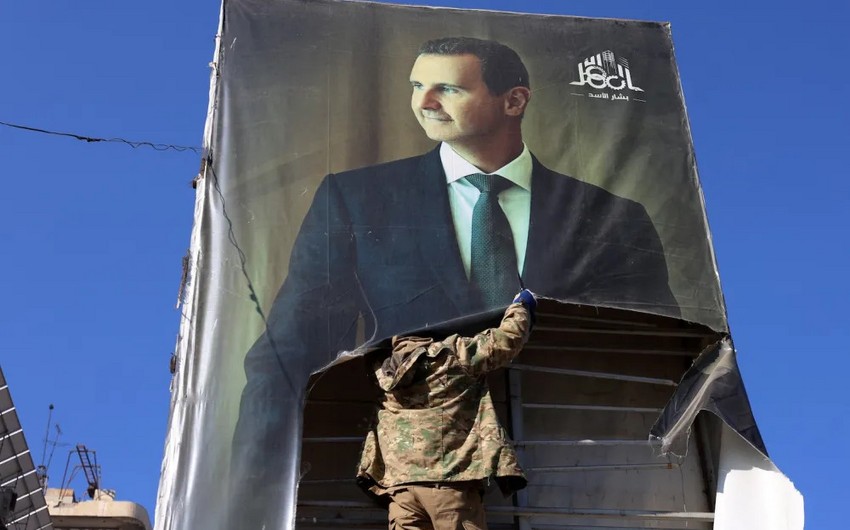After the defeat of the main ISIS forces and the end of the hot phase of the Syrian civil war in 2019, it seemed that the status quo would be long-lasting. The government forces were expected to gradually take control of the entire country and suppress the armed rebellion. However, the Syrian "Carthage" was still destined to fall, and the fall turned out to be swift.
The regime of Bashar al-Assad, which also represented the Alawites (a religious minority in Syria), was not particularly humane and did not enjoy much popularity among the population. The brutality of his regime sparked the civil war, which resulted in Syria suffering losses of hundreds of thousands killed on the battlefield and millions of refugees fleeing the country.
The former ophthalmologist was not far-sighted enough to correctly prioritize foreign policy and respond to geopolitical changes in the Middle East in a timely manner. In foreign policy, the younger Assad continued his father's policy, maintaining close ties with Iran and Russia, often ignoring the interests of other players in the region.
Assad refused to take internal threats seriously, even though Türkiye warned him that it was better to negotiate with the opposition than to go for open confrontation. Moreover, Türkiye repeatedly stated that it supported the territorial integrity of Syria.
It is difficult to list all the countries with which Bashar Assad managed to spoil relations. This also affected Azerbaijan. As a member of the Non-Aligned Movement and the Organization of Islamic Cooperation (OIC), Damascus did not seek to establish relations with Baku on these common platforms. On the contrary, Syria repeatedly refused to support resolutions within the OIC demanding the liberation of Azerbaijani lands from Armenian occupation.
For example, Syrian special services, with Assad's support, cooperated with Armenian terrorist organizations based in his country, such as the Nubar Ozanyan Battalion, which was created in 2019. In general, Assad was considered a close friend of Serzh Sargsyan and Nikol Pashinyan.
Let's not forget Assad's claim that Syrian militants allegedly participated in the Second Karabakh War on the side of Azerbaijan in the fall of 2020. This was nothing more than a news fake. But Baku drew its conclusions.
Assad's myopia was also evident in his assessment of his own army. Low salaries and delays in their payment, fear of repression, and insufficient authority among the population led to government forces leaving cities to militias without a fight. Be that as it may, the regime fell in just 11 days. A provisional government has been created in Syria, which promises to prepare a new constitution within 6 months.
The question arises: who are these new "masters" of the country? One of the leaders of the opposition that overthrew the Assad regime, Abu Muhammad al-Julani, does not have an impeccable past. He was a militant of Al-Qaeda and the Islamic State of Iraq (ISI). Hayat Tahrir al-Sham, which he leads, consists of a large number of different groups, many of which are terrorist organizations.
Control by the rebels over Damascus has not yet brought the long-awaited peace to Syrian soil. In addition to the opposition forces, there are also Kurdish nationalist and terrorist organizations that hold separate parts of Syria. So the new government in Damascus should not rest on its laurels and needs to find a way out of the current difficult domestic political situation.
Kurdish separatism, religious radicals, and external influence on the country suggest that the millions of refugees who left Syria in search of a better and safer life will not be able to return anytime soon.
No less important for establishing peace in the region is the ability of the new authorities to negotiate with all interested players: Israel, Türkiye, Iran, Russia, and the United States. Each of these countries pursues its own interests, often contradicting the interests of others.
Given that Assad did not develop relations with his neighbors with much enthusiasm, focusing more on old allies, the world community today hopes that joint efforts will help bring Syria out of the severe crisis. But it is hard to believe...


